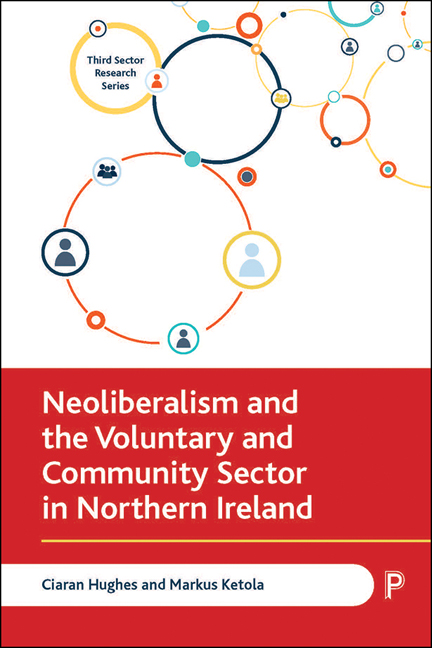Book contents
- Frontmatter
- Contents
- List of abbreviations
- Acknowledgements
- Series editor’s foreword
- one Introduction
- two Neoliberal enrolment? The ‘partnership turn’ in government rhetoric and policy
- three Getting connected: celebrating the value of connections and networks
- four Inside the networks: the rhetoric and the reality
- five Independence of voice, purpose and action
- six Conclusion
- Notes
- References
- Index
Series editor’s foreword
Published online by Cambridge University Press: 30 April 2022
- Frontmatter
- Contents
- List of abbreviations
- Acknowledgements
- Series editor’s foreword
- one Introduction
- two Neoliberal enrolment? The ‘partnership turn’ in government rhetoric and policy
- three Getting connected: celebrating the value of connections and networks
- four Inside the networks: the rhetoric and the reality
- five Independence of voice, purpose and action
- six Conclusion
- Notes
- References
- Index
Summary
The extent to which greater devolution in the UK has resulted in divergences in the development of voluntary action, and in the roles, resources and responsibilities of voluntary organisations, is a question on which we lack detailed empirical studies. Differences between the devolved administrations in terms of individual behaviours such as volunteering or charitable giving largely disappear, once allowance is made for individual and community characteristics. Comparisons of organisational populations and resources are to a degree occluded by regulatory differences seem more likely to be rooted in economic conditions in communities, rather than policy differences.
Consideration of such indicators only gets us so far, and studies are urgently needed of policy and practice in the voluntary sector in the devolved administrations. The position of civil society in Northern Ireland offers a crucial test case for the claims made for the voluntary sector's contribution to social development. This study by Hughes and Ketola is the first recent book-length treatment of such questions, and constitutes a highly original study of the place of voluntary action in the devolved administrations of the UK.
The voluntary sector in Northern Ireland has become a key agent in post-conflict reconstruction since the Good Friday Agreement of 1998. But the burden of expectations placed upon civil society there was high well before that momentous event. Given the longstanding distrust of state institutions, communities understandably turned to voluntary organisations which, during the period of direct rule from Westminster, played a crucial role in the delivery of social programmes.
From 1998, Northern Ireland experienced what has been described as a ‘double transition’ towards peace, and towards neoliberalism. While post-conflict reconstruction led to very substantial influxes of funding for voluntary and community organisations, such beneficence was never expected to continue indefinitely. As a consequence, the reality has been one of partnerships between the voluntary sector and government. Hughes and Ketola's study has important insights to offer concerning the rhetoric and reality of partnerships between voluntary organisations and governments, and it also makes a significant contribution to debates about what has been characterised as a generic ‘partnership turn’ in the sector.
- Type
- Chapter
- Information
- Publisher: Bristol University PressPrint publication year: 2021



